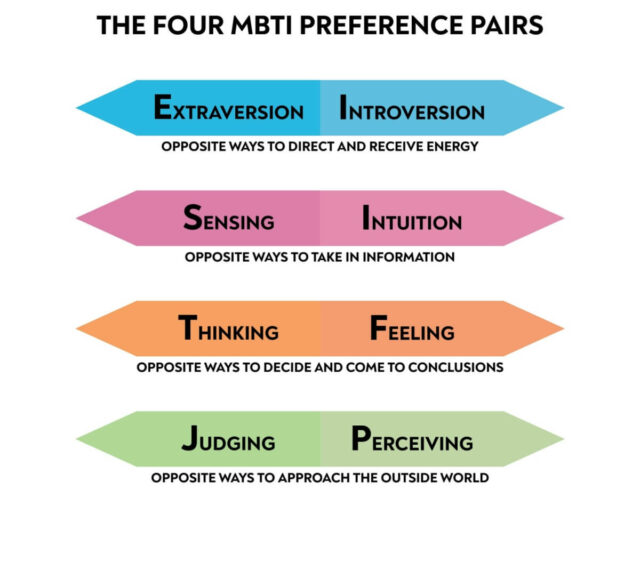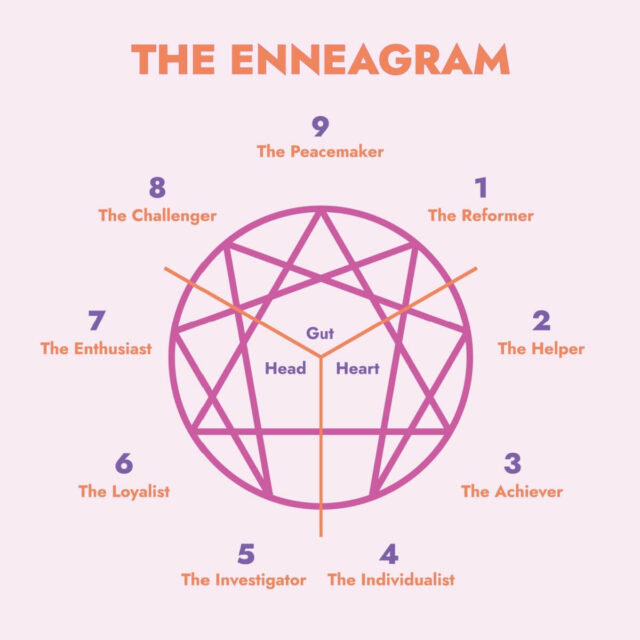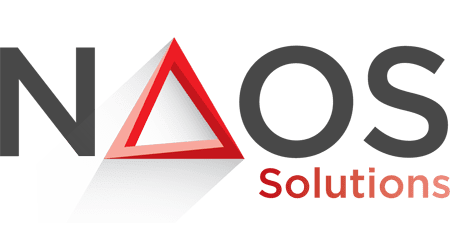Hiring customer service agents in Egypt is a crucial step for businesses looking to provide seamless support, improve customer satisfaction, and drive long-term success. Whether expanding your call center operations or building a dedicated support team, making the right hiring decisions ensures that your customers receive top-tier service.

Recruiting the right talent goes beyond checking resumes—it’s about finding the perfect balance between skills and attitude. This guide will walk you through proven strategies for evaluating candidates effectively, from competency-based interviews to role-play assessments, helping you build a strong, customer-focused team.
We will provide you with a clear roadmap for hiring the best customer service agents in Egypt, ensuring they meet your technical requirements and enhance your brand’s reputation through exceptional customer interactions.
UNDERSTANDING THE EGYPTIAN CUSTOMER SERVICE LANDSCAPE
Egypt’s customer service scene is buzzing, with a multilingual workforce of roughly 250,000 FTEs fluent in over 20 languages. This makes Egypt an attractive spot for companies looking to outsource their customer service, especially those targeting European markets.
The hourly wage (gross) for customer service agents in Egypt is around EGP 11,500 ($228 gross) per month.
In addition, Egypt’s Business Process Outsourcing (BPO) market is predicted to grow by 10.67% from 2025 to 2029, reaching nearly $780 million. Egypt’s location is prime, labor costs are competitive, and a considerable supply of educated, skilled people is ready to work.
Like any industry, Egypt’s customer service sector has its challenges. In addition to high turnover rates, inflation is also a concern. Therefore, while the potential is enormous, having the right team to navigate these challenges is essential.
Why the Skills vs. Attitude Debate Matters in Egypt
Recruiting customer service agents in Egypt isn’t just about filling positions—it’s about building a team that enhances customer satisfaction and loyalty while reducing turnover.
- Turnover rates are persistent issues: A third of companies in Egypt experience a 21% turnover rate, more than double the recommended industry benchmark. One of the main reasons employees leave is poor job fit, which often results from focusing too much on technical skills and overlooking attitude.
- Training investments are costly: While hiring for attitude allows companies to shape employees through training, excessive investment in upskilling agents who lack basic competencies can increase operational costs and slow down efficiency.
To build high-performing customer service teams in Egypt, recruiters must determine the right balance between hiring for skills and hiring for attitude.

Skills vs. Attitude: What’s the Difference?
| SKILLS | ATTITUDE | |
| Definition | Learned abilities that help agents perform their jobs. | A candidate’s mindset, personality traits, and approach to work, such as |
| Hiring Advantages | Faster onboarding, reduced training costs, and immediate productivity. | Higher customer satisfaction, stronger teamwork, and increased retention. |
| Challenges | Skilled employees may lack motivation, struggle with teamwork, or be less prone to client empathy. | Attitude-first hires may require extensive technical training, delaying operational efficiency. |
By understanding these differences, businesses in Egypt can make informed hiring decisions that align with their service goals, workforce needs, and long-term growth strategies.
THE CASE FOR PRIORITIZING SKILLS
In customer service, “skills” include all abilities that enable agents to interact with customers and resolve their issues effectively. This includes crystal-clear communication, problem-solving skills, technical proficiency, and more.
Hiring candidates who already possess these skills has many advantages. One of the biggest is reduced training time. Since you’re not starting from scratch, these agents can hit the ground running much faster.
That means quicker onboarding and less money spent on lengthy training programs. Skills-based hiring has reduced hiring costs for 78% of employers.
Why Hiring for Skills Matters in Egypt’s Customer Service Industry
While many companies in Egypt require at least two years of experience when hiring customer service agents, the reality is that not all experience is created equal. Depending on where an agent has previously worked, their habits, customer interaction style, and approach to problem-solving can either be an asset or a liability.
Businesses can reduce onboarding time, improve customer satisfaction, and build a more agile workforce by focusing on key skills.
Essential Skills for Customer Service Agents in Egypt
To thrive in Egypt’s fast-growing customer service industry, agents need a combination of technical competencies, communication etiquette, and industry-specific knowledge.
1. Multilingual Communication & Customer Support Etiquette
- Egypt’s outsourcing market caters to international clients, making fluency in multiple languages (especially English, French, and German) a significant advantage.
- Strong verbal and written communication skills are crucial, including active listening, clear speech, and professional email etiquette.
- Customer support etiquette includes:
- Using polite and professional language.
- Mirroring a customer’s tone to build rapport.
- Knowing when to escalate issues to a higher authority.
- Maintaining composure even when dealing with difficult customers.

2. Mastery of Customer Service Processes & CRM Software
- Familiarity with popular CRM platforms (e.g., Salesforce, HubSpot, Zoho) is essential for efficiently managing customer interactions.
- Agents should be comfortable navigating ticketing systems, order management platforms, and internal databases.
- Understanding key customer service workflows and processes is crucial:
- Handling complaints efficiently while ensuring customer satisfaction.
- Processing refunds, cancellations, and exchanges while following company policies.
- Tracking and updating customer interactions to maintain service continuity.
3. Cultural Awareness & Customer Personalization
- Egypt’s service industry supports clients from diverse cultures, requiring awareness of cultural sensitivities and local business etiquette.
- Agents must adjust their tone and communication style based on the customer’s background.
- Personalized customer service, which addresses customers by name, references previous interactions, and provides customized solutions, can significantly enhance satisfaction.
💡 Example: A skilled agent supporting a UK-based financial services company must understand British communication norms, such as a preference for formal language and indirect complaints handling.
4. Adaptability to Changing Customer Needs
- Customer service is constantly evolving, with new technologies and policies introduced regularly.
- Agents must be quick learners who can adapt to software updates, shifting company policies, and changing customer expectations.
- Resilience and flexibility are crucial for handling high-pressure situations, especially during peak service hours.
Potential Downsides of a Skills-First Hiring Approach
While hiring skilled candidates offers many advantages, focusing solely on technical competencies can lead to team dynamics and company culture fit challenges.
Case Study: When a Highly Skilled Agent Fails Due to Poor Cultural Fit
🔹 Situation: A multinational telecom company in Egypt hired a technically brilliant customer service agent with extensive experience troubleshooting network issues.
Despite their expertise, the agent struggled with teamwork and had a rigid communication style that clashed with the company’s service-oriented culture. They were impatient with customers and dismissive of colleagues’ suggestions.
🔹 Outcome: The agent frequently escalated calls unnecessarily, leading to customer complaints. Within three months, the agent left due to conflicts with management and team members.
Technical skills alone don’t guarantee success. An agent lacking collaboration, emotional intelligence, and a service-oriented mindset can negatively impact customer satisfaction and team morale.
THE CASE FOR PRIORITIZING ATTITUDE
In customer service, attitude is just as important—if not more—than skills. It goes beyond just being polite or using scripted niceties like “please” and “thank you.” Attitude is about mindset, emotional intelligence, and adaptability, directly influencing how an agent interacts with customers and handles challenges.

Why Hiring for Attitude Matters in Customer Service
Hiring for attitude can lead to higher customer satisfaction, stronger teamwork, and reduced turnover rates. Agents with the right mindset are more likely to:
✔ Build rapport effortlessly – Customers are more likely to have a positive experience when they feel heard and valued.
✔ Demonstrate empathy and patience – They understand customer frustrations and remain calm under pressure.
✔ Go the extra mile – Rather than just following the script, they proactively look for ways to solve problems efficiently.
✔ Be adaptable and open to learning – Customer service constantly evolves, and attitude-driven employees embrace training and feedback.
A positive attitude benefits customers and fosters higher employee engagement. Studies show that disengaged employees cost companies billions in lost productivity.
In contrast, engaged and motivated agents are more likely to:
🔹 Enjoy their work and be more committed to their roles.
🔹 Stay with the company longer, reducing turnover and recruitment costs.
🔹 Motivate their teammates, creating a positive work culture.
However, while hiring for attitude has clear benefits, it also comes with challenges. The biggest drawback is that skills take time to develop. Hiring someone with the right attitude but lacking technical competencies means a significant investment in training and onboarding.
Additionally, not all candidates with great personalities are trainable. Research shows that 46% of new hires fail within the first 18 months, often because they cannot translate their positive attitude into the required job performance.
The Ideal Personality Types for Customer Service Agents
While attitude matters, some personality types are naturally better suited for customer service roles. Using frameworks like MBTI (16 Personalities), Enneagram, and DISC assessments, recruiters can identify candidates with the best personality traits for handling customers effectively.

1. MBTI (Myers-Briggs Type Indicator) – Best Personalities for Customer Service
✔ ESFJ (“The Consul”) – Highly empathetic, service-oriented, and enjoy helping others.
✔ ENFJ (“The Protagonist”) – Natural problem-solvers who connect with people and think independently.
✔ INFJ (“The Advocate”) – Excellent at understanding customer concerns and offering meaningful solutions.
✔ ISFJ (“The Defender”) – Patient, detail-oriented, and excellent at maintaining long-term customer relationships.
💡 Example: An ESFJ agent in Egypt’s hospitality sector would naturally excel at handling VIP customer complaints professionally and warmly.
2. Enneagram – Best Customer Service Personality Types
✔ Type 2 (“The Helper”) – Naturally empathetic and loves assisting people.
✔ Type 9 (“The Peacemaker”) – Calm under pressure and skilled at de-escalating conflicts.
✔ Type 6 (“The Loyalist”) – Reliable and great at following structured processes while supporting both customers and teammates.
💡 Example: A Type 9 agent in an Egyptian telecom company would be exceptional at calming frustrated customers and resolving billing disputes without escalating tensions.

3. DISC Personality Model – Best Fit for Customer Support Roles
✔ High “S” (Steady Personality) – Patient, empathetic, and great at handling repetitive customer inquiries without frustration.
✔ Balanced “C” (Conscientious Personality) – Detail-oriented and ensures accuracy in order processing and technical troubleshooting.
💡 Example: A high “S” personality working in Egypt’s e-commerce industry would be ideal for handling return/refund requests calmly, ensuring customers feel valued even during frustrating experiences.
A BALANCED APPROACH TO RECRUITMENT
In our journey to discover the best talent, we’ve explored the advantages and challenges of prioritizing skills and attitudes. Ultimately, the best hiring approach is not to choose one over the other but to strike a balance between them.
To achieve this balance, businesses must adopt structured evaluation methods, including competency-based interviews, role-play tests, and assessment tools. These techniques help ensure that customer service agents in Egypt are both technically skilled and customer-centric, leading to better performance and lower turnover.
Competency-based Interviews
Competency-based interviews are structured to assess candidates beyond their resumes, focusing on how they react in real-world customer service scenarios. Instead of simply asking about experience, recruiters evaluate responses using a predefined grid. Research shows that these interviews have an 81% accuracy rate in predicting on-the-job performance.
How to Design an Effective Evaluation Grid
- Identify Key Competencies – List the must-have skills and attitudes for the role.
- Create Behavioral Questions – Formulate open-ended questions that reveal how candidates have handled similar situations.
- Define Rating Criteria – Use a scoring system to assess each response objectively.
- Assign Weight to Each Competency – Prioritize critical skills and attitudes based on the company’s customer service standards.
Sample Evaluation Grid for a Customer Service Role
| Competency | Behavioral Interview Question | Poor
(1-2) |
Average
(3-4) |
Excellent
(5-6) |
Weight (%) |
| Problem-Solving | “Tell me about a time you faced a frustrated customer. How did you handle the situation?” | Blames the customer fails to offer solutions. | Provides a basic resolution but lacks initiative. | Shows empathy, resolves the issue efficiently, and ensures customer satisfaction. | 30% |
| Communication Skills | “Give an example of how you explained a complex issue to a customer.” | Uses unclear language, confuses the customer. | Communicates adequately but lacks clarity. | Breaks down the issue effectively, ensures the customer understands. | 20% |
| Empathy & Patience | “Describe a time you had to deal with a very difficult customer. How did you keep your composure?” | Becomes defensive or aggressive. | Maintains composure but lacks emotional intelligence. | Stays calm, listens actively, and de-escalates the situation effectively. | 25% |
| Adaptability & Learning Ability | “Give an example of how you adapted to a sudden policy change at work.” | Resists change or struggles to adjust. | Adapts with some difficulty but follows through. | Quickly adjusts and proactively finds ways to improve efficiency. | 15% |
| Technical Proficiency | “How comfortable are you with using CRM tools like Salesforce or Zoho?” | No experience, unwilling to learn. | Some experience, needs additional training. | Proficient, confident, and able to train others if needed. | 10% |
💡 Tip: A candidate scoring above 80% on the grid is an ideal hire. They may be worth investing in if they score well on attitude-based competencies but need skill improvement.

Role-Play Scenarios to Test Both Skills and Behavior
Role-playing is a powerful way to see how candidates handle real-world customer interactions in real-time. It tests their problem-solving ability, stay calm under pressure, and communicate effectively.
How to Conduct a Role-Play Test
- Define the Scenario – Choose a common customer issue the candidate will face in the job.
- Assign Roles – The interviewer (or another team member; see recommendations below the table) acts as the customer, while the candidate plays the support agent.
- Set Expectations – Give a brief background on the customer’s issue but do not reveal everything—allow the candidate to ask clarifying questions.
- Observe and Evaluate – Use a role-play evaluation sheet similar to the competency-based interview grid.
- Provide Feedback – Discuss what the candidate did well and where they need improvement.
Example Role-Play Scenarios
| Scenario | Interviewer’s Role | What to Observe |
| Difficult Customer Complaint | A frustrated customer demanding a refund after a product malfunction. | Patience, empathy, and problem-solving ability. |
| Technical Support Call | A customer struggling to log into their account. | Communication clarity, ability to provide step-by-step guidance. |
| Handling an Angry Customer | A customer who received the wrong order and is threatening to leave a bad review. | De-escalation skills, ability to turn the situation around. |
| Cross-Selling Opportunity | A customer inquiring about an essential service, but an upgrade might benefit them. | Persuasiveness, ability to communicate value. |
💡 Who Should Conduct the Role-Play?
- Team Leaders – They have real-world experience and can evaluate practical performance.
- QA Team Members – Quality assurance specialists understand company service standards and can measure compliance.
- Experienced Customer Support Agents – Peer-level assessment can help determine cultural fit and team compatibility.
Assessment Tools to Evaluate Aptitude and Learning Potential
Assessment tools, in addition to structured interviews and role-plays, can provide data-driven insights into a candidate’s skills, personality, and problem-solving abilities.
Here are a few tools we can recommend:
- TestGorilla: Skills-based tests for communication, language proficiency, and CRM familiarity. It helps filter candidates based on core competencies before interviews.
- Predictive Index (PI): Measures cognitive ability, personality, and job-related behavioral traits. It identifies natural problem-solvers and fast learners.
- Crystal Knows: Personality insights based on DISC and Enneagram. It helps determine if a candidate’s natural communication style fits the company culture. Many insights are available right from the candidate’s LinkedIn profile.
- Harver: AI-powered pre-employment assessments for soft skills, situational judgment, and personality. It provides data-driven hiring insights to reduce bias.
- HireVue: AI-powered video interviews that assess emotional intelligence and communication skills. It allows structured evaluation at scale before final interviews.
💡 Tip: Combine an online skills test + a structured interview + a role-play assessment for the most accurate hiring decision.

Practical Tips for Hiring Customer Service Agents in Egypt
Hiring customer service agents in Egypt can be a game-changer for your business, but it requires a strategic approach. Posting a job ad and hoping for the best is not enough. You need a well-defined plan that attracts the right candidates, assesses their skills and attitude effectively, and sets them up for success.
Here’s how to design an effective recruitment strategy:
- Step One: Your job description is the first impression your company will make on potential candidates. Make it count! Don’t just list the required skills – highlight the desired personality traits and attitudes, too. For example, instead of “Excellent communication skills,” you could say “Excellent communication skills, with a passion for helping others.”
- Step Two: Where do you find these fantastic customer service agents? A multi-faceted approach is best. Utilize popular job boards in Egypt, like Wuzzuf or Bayt.com. You can also consider working with outsourcing partners specializing in placing customer service professionals.
- Step Three: The hiring process doesn’t end when you make an offer. The training and the probation period are the perfect time to validate your hiring decisions. It’s a chance to see how the new agent performs in a real-world environment and assess whether their skills and attitude align with your expectations. Use this time to provide feedback, coaching, and support. It’s a win-win – the agent gets a chance to prove themselves, and you’ll ensure you’ve made the right choice.
However, retention can be a big issue in Egypt’s customer service industry. A third of companies in Egypt have a 21% turnover rate – more than double the recommended rate.
Good agents are in high demand, so you must create a work environment that keeps them engaged and motivated. Offering competitive salaries and benefits is essential but not the only factor. You need to provide opportunities for career growth and development because agents want to feel like they’re learning and progressing.
Of course, work-life balance initiatives are also becoming increasingly important. Offering flexible schedules or other perks can make a big difference in attracting and retaining top talent. It’s about creating a workplace where people feel valued, supported, and have room to grow.
Conclusion
Hiring customer service agents in Egypt is a balancing act. You need the right mix of skills and attitude to build a team that can genuinely make a difference.
After reading our guide, you can create a recruitment process that attracts top talent and sets them up for success. Remember, your customer service team is the face of your company. Investing in them is investing in your future.
NAOS Solutions offers top-notch outsourced call center services, specializing in finding and training highly skilled and motivated agents in Egypt. We handle everything so you can focus on what you do best – running your business. Contact NAOS Solutions today for a free consultation, and let us help you build a customer service dream team.


One comment
Pingback: 3 Pillars of Contact Center Outsourcing | CX Blog
Comments are closed.